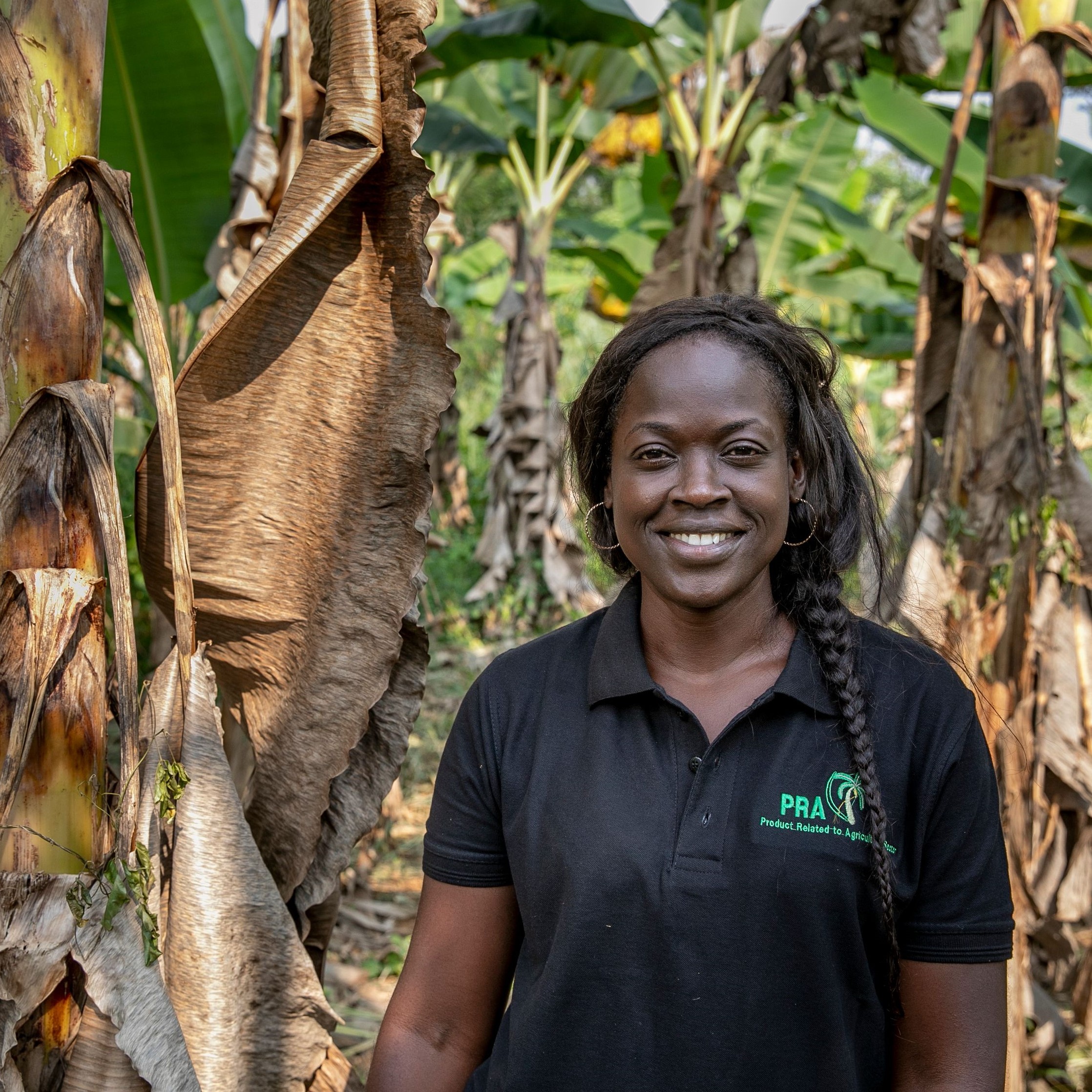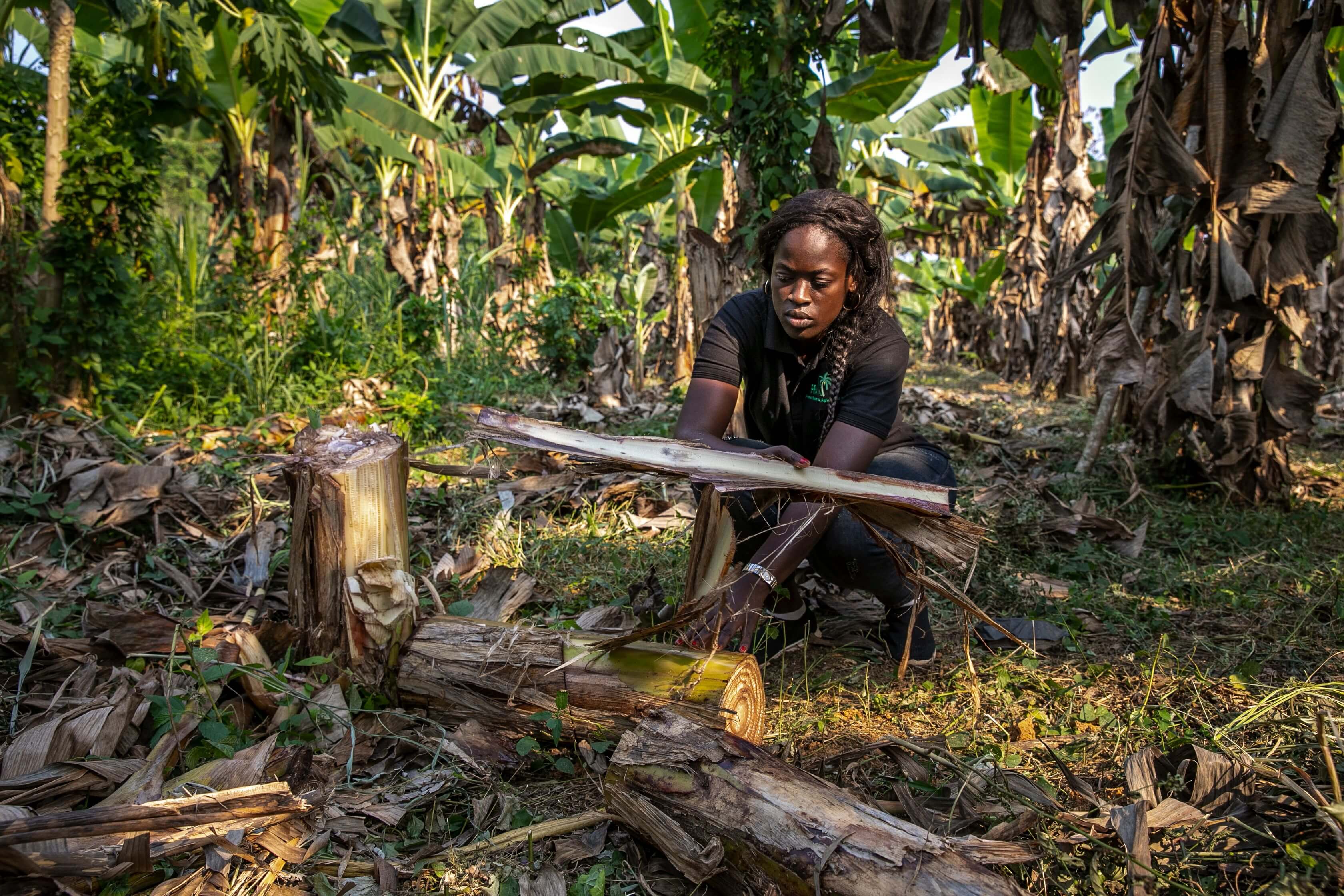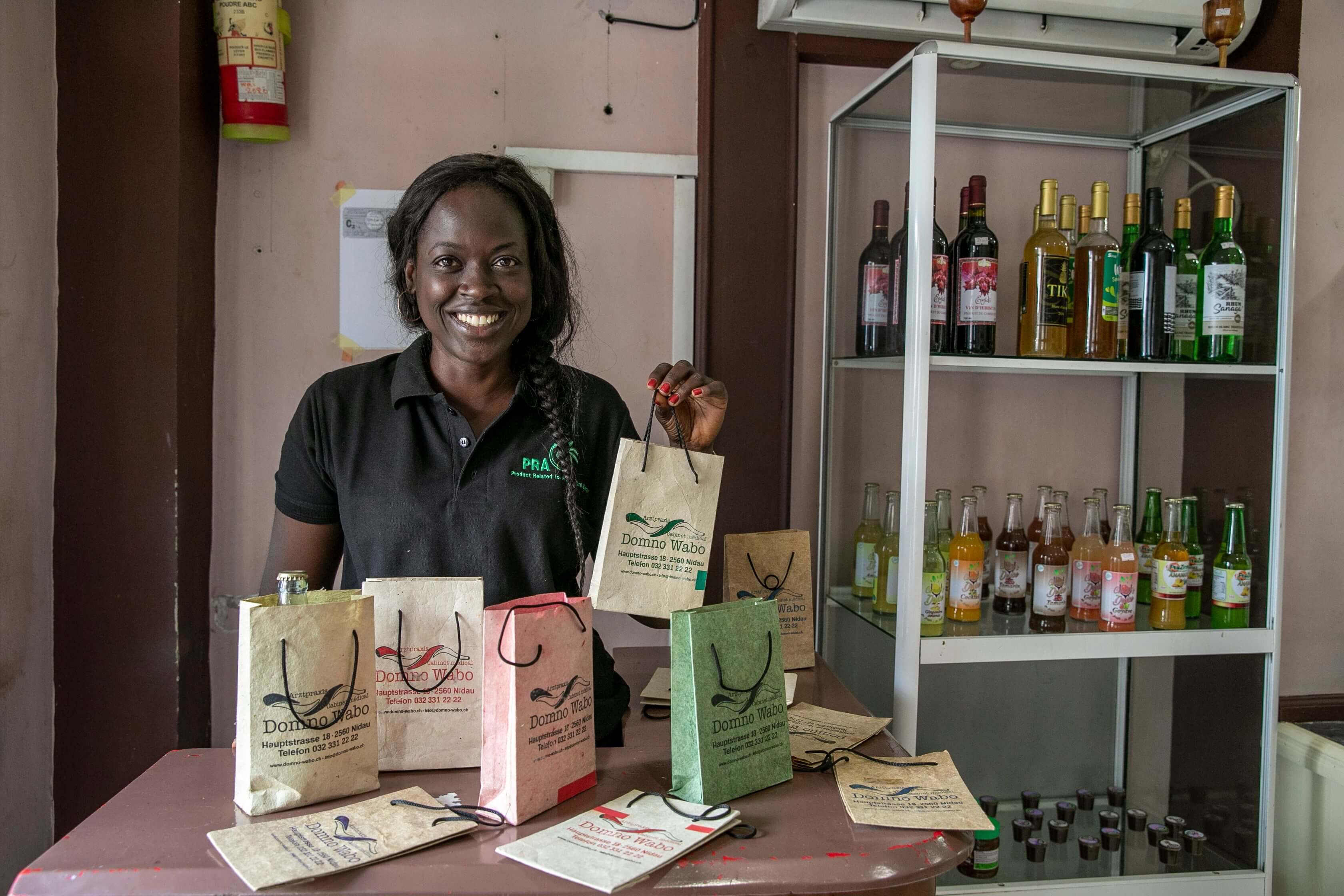Agricultural entrepreneur Armelle Sidje believes zero waste can be the new normal in Cameroon, where her shopping bags, cardboard and rolls of paper replace wood-based paper and plastic packaging.
Despite historically being the world leader in plantain production, Cameroon has already seen a loss of 200,000 hectares of vegetation due to deforestation for plastic-accumulating landfills. Roughly 4.3 million tonnes of plantain fruit is produced in Cameroon each year, and twice as much as this is discarded as waste by farmers. Sidje and her team collect plantain stems from this valuable biomass waste to produce a biodegradable alternative to paper and plastic packaging.
The process involves unsheathing the plantain and banana stems, extracting the fibres, and boiling to remove lignite. A paper pulp made from the cellulose that remains is then dried in the sun, from which Biopackaging is made, fit for purpose for retail applications.
Sidje and her team have grown their business considerably over the last year, increasing production from two bags a week in 2019 to 50 bags each day in 2020. Their goal for 2021 is to increase production to 500 bags per day. To expand Sidje’s zero waste vision across the continent, they are also developing an online platform to connect eco-friendly packaging customers with sellers across sub-Saharan Africa. Sidje also hopes to create jobs for rural women and young people as her business grows.

“Cameroon has such an abundance of plantain by-products, it was an obvious solution for us. Biopackaging is stronger, more sustainable, and will soon be more affordable than traditional paper and plastic. It's a win-win for businesses and the environment, and we hope it inspires more innovations like it.”
Armelle Sidje, Biopackaging


